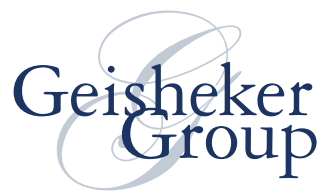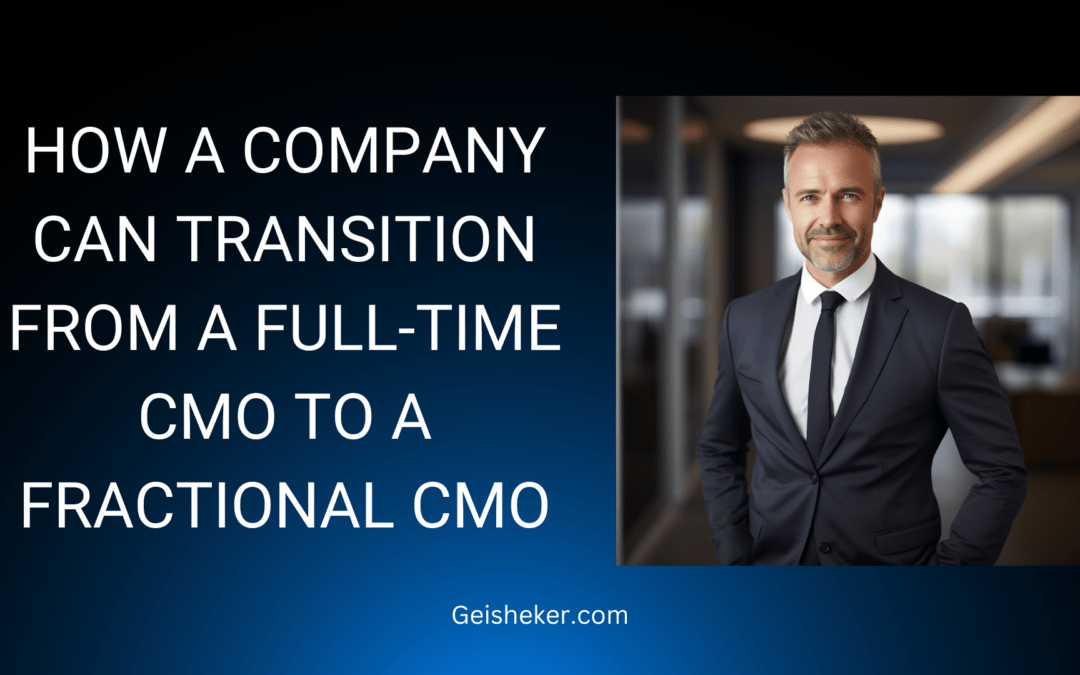Many companies hire a full-time Chief Marketing Officer (CMO) to oversee their marketing strategy and campaigns. However, retaining a full-time CMO can be costly, and their broad scope of responsibilities doesn’t always align with a company’s evolving needs. This has led some organizations to replace their CMO with a fractional CMO instead.
A fractional CMO is an independent marketing consultant who works on a part-time or project basis. They provide strategic guidance and help execute impactful marketing initiatives without requiring a full-time salary or benefits package. Transitioning from a full-time CMO to a fractional one offers several advantages that businesses should consider.
Assessing Your Current Marketing Needs
Before switching to a fractional CMO, companies should assess their current marketing requirements honestly. What skills and responsibilities does your marketing strategy demand daily, weekly, and monthly? Where could you use some additional strategic input or oversight? Make a list of vital marketing functions along with time and budget estimates.
This analysis will reveal whether your marketing needs warrant a full-time resource or a narrower, temporary focus. Perhaps you need a fractional CMO to develop and implement a single product launch campaign versus overseeing all marketing activities indefinitely. Don’t default to historical norms without first evaluating present conditions and future goals.
Gaining An Outside Perspective
Full-time CMOs provide an insider’s perspective with in-depth company and customer knowledge. While valuable, this can also lead to blind spots, status quo thinking, and repetition of ineffective campaigns. Fractional CMOs approach your marketing initiatives from an outsider’s perspective, noticing opportunities and challenges that overtenured employees might overlook.
An experienced fractional CMO also brings best practices and insights from other industries that could spark innovative ideas. Their outside point of view shakes up stale thinking and introduces new growth strategies beyond the usual approaches your team suggests. They act as a strategic sounding board for your marketing team, providing creative solutions to boost performance.
Optimizing Marketing Spend
Paying an annual mid-six-figure salary for a full-time CMO represents a significant company investment, leading to pressure to keep that executive busy and engaged. Unfortunately, there might not be enough vital marketing work each month to warrant such expensive overhead. This can result in waste as the CMO oversees and implements campaigns that are misaligned with core business goals to fill their hours.
Conversely, fractional CMOs charge only for actual hours worked on critical activities that drive impact and ROI. You pay less for marketing leadership overall, freeing up the budget to invest in other revenue-generating areas. With no need to keep them occupied full-time, fractional CMOs can focus purely on the marketing projects that matter most today. Their time aligns with current needs versus trying to fill a predefined role.
Enhancing Marketing Agility
The marketing world progresses rapidly, with consumer preferences shifting and new platforms and technologies launching at a dizzying rate. Most full-time CMOs have fixed strategies and rigid processes locked in based on what has worked before. Their extensive plans devised years ago can impede their ability to respond dynamically to changes in the marketplace.
In contrast, fractional CMOs enter without years-long strategy commitments or bureaucracies to navigate. Thanks to their unconstrained perspective, they can respond more nimbly today and adjust recommendations faster as needs fluctuate. With fractional CMOs, you gain an agile marketing partner that can flex as priorities evolve rather than push outdated static roadmaps.
Accessing Specialized Marketing Expertise
While many full-time CMOs boast general marketing knowledge, they often specialize in areas like digital marketing, brand messaging, market research, and so on. Rarely does a single CMO possess the deep expertise required for success across all marketing facets. This leaves companies with capability gaps unless they can afford additional marketing hires.
Fractional CMOs let you access niche subject matter expertise on-demand without inflated full-time costs. For example, engage a brand messaging expert for a new campaign, then switch to a former CMO from your industry to refine market positioning. The breadth of customizable support reduces strategy weaknesses and avoids hiring unneeded full-time staff.
Facilitating Succession Plans
Some companies hire fractional CMOs on a trial basis to assess their fit before making a full-time investment. This approach reduces risk, with minimal upfront commitment required. It also facilitates smooth leadership transitions when the time comes for your fractional CMO to hand off to a new hire.
Unlike an outgoing full-time employee who holds onto responsibilities until their last day, a fractional CMO will have already limited scope and shared marketing oversight for easier transition planning. Any new full-time CMO can get up to speed faster thanks to past strategic guidance emphasis over tactical execution from the fractional arrangement.
Focusing Marketing Leadership Attention
While filling the position, full-time CMOs must dedicate substantial efforts to daily departmental management, limiting bandwidth for revenue-impacting work. As the organization’s marketing leader, they attend endless meetings, manage employees, handle budgets/expenses, and address customer issues, plus general administrative headaches.
Conversely, fractional CMOs avoid much of the grind by only focusing on agreed-upon marketing deliverables. With no team to manage, budgets to control, or office politics to navigate, fractional CMOs devote maximum time to strategy and execution. Their attention centers wholly on advancing critical marketing initiatives rather than standard operating procedures.
Reduce Costs and Overhead
Compared to funding a full-time CMO’s $300 – $500k salary plus benefits, payroll taxes, stock options, bonuses, and office space, fractional CMO fees ranging from $5K – $25K per month represent significant savings. Your fractional CMO works remotely from their own office, eliminating overhead. The model essentially converts fixed costs into flexible variable expenses that scale up and down based on needs.
Beyond direct compensation savings, fractional CMOs bring cost discipline by optimizing marketing budgets and eliminating wasteful programs that fail to drive measurable impact. Their incentive connects directly with delivering an ROI versus churning budgets to justify a lofty salary. Carefully tracked spending and performance data replace gut instincts and assumptions.
Enhancing Work-Life Balance
Fractional CMOs enjoy a better work-life balance from their flexible, independent contractor roles spanning multiple companies versus enduring the relentless rigors of full-time CMO positions. With plenty of projects and clients to choose from, thanks to their niche expertise, fractional CMOs avoid career risks from concentrating efforts under a single employer.
The autonomy, variety, and passion fueling the fractional CMO model lead to higher job enthusiasm that translates to better client service and superior work output relative to bored or burned-out full-time resources just going through the motions. Their work-life harmony reduces churn, strengthening partnerships.
Access Top Industry Talent
The most qualified CMO candidates typically prefer flexible consulting and advisory roles versus highly political full-time positions with extreme pressure to perform. Top experts with 15-20 years of CMO experience will rebuff recruiter outreach for ordinary full-time openings. However, the unique fractional opportunity and built-in work-life balance might motivate them to engage.
The fractional arrangement expands your CMO search to access elite marketers overqualified for standard full-time roles but perfect for targeted project collaborations. This raises the marketing competency bar significantly compared to available full-time candidates.
Final Considerations
The decision to shift from a full-time to a fractional CMO should follow an objective assessment determining strategic needs, available budgets, and expected ROI. While fractional CMOs offer advantages, the model might not align with growth-stage companies requiring substantial marketing oversight. Larger enterprises may also prefer permanent, internally focused leadership over external consultants.
Carefully qualify fractional CMO candidates to ensure proper technical marketing expertise, cultural fit, and collaboration skills. Clearly detail project expectations, timelines, and metrics upfront to enable success. Schedule gradual trial periods before granting long-term agreements. Finally, understand that fractional CMOs will have some client conflicts, so maintain realistic availability expectations.
Implemented thoughtfully, specializing CMO functions utilizing experienced fractional resources can elevate strategy absent full-time constraints. Just be sure to match intermittent requirements at this stage rather than overspending without cause. The fractional CMO route balances senior-level guidance with budget efficiency for the right organizations.
Hire a Leading B2B SaaS Fractional Chief Marketing Officer
If your company needs a B2B SaaS fractional Chief Marketing Officer, consider working with Peter Geisheker. Peter has been providing Fractional CMO services for over 20 years and has expertise in growth tactics and conversion optimization. View Peter’s Fractional CMO case studies.


